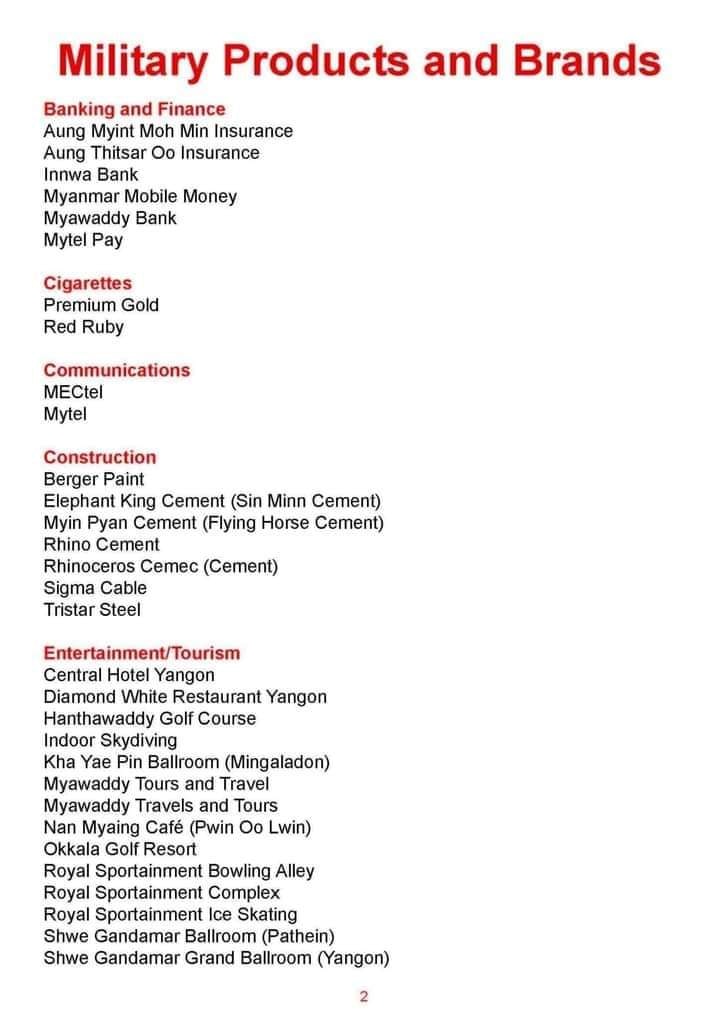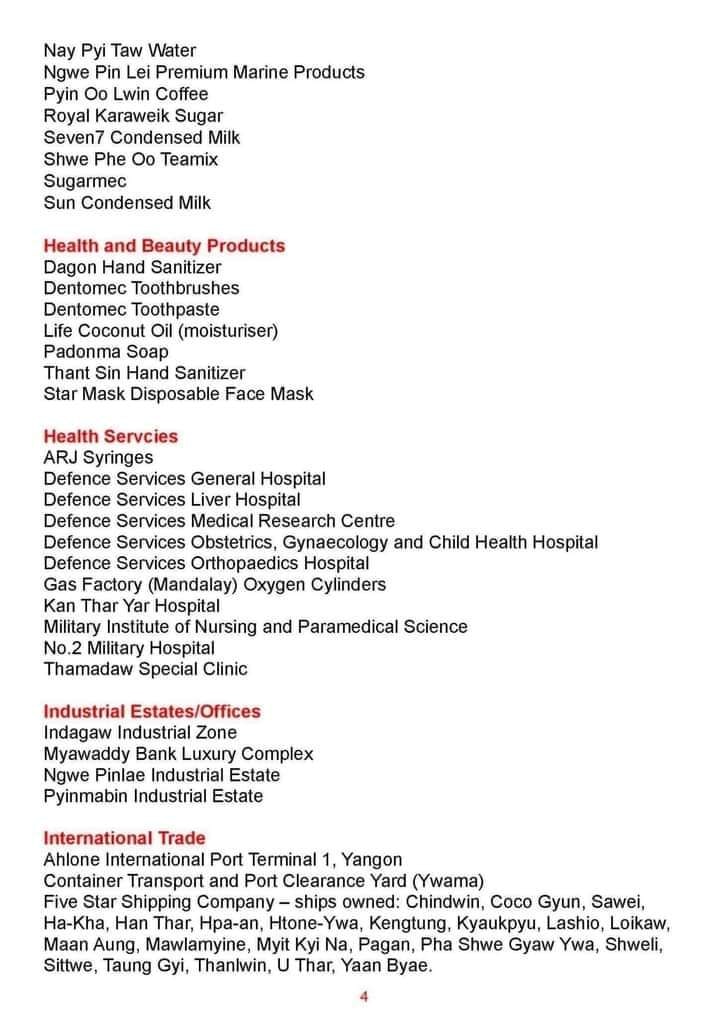An interesting thing about the current #coup in #Myanmar are, unlike the precedents, are the two forces against #Tatmadaw that maybe stronger than sanctions: a middle class that protest with labor and consumption, and support for democracy by ethnic armed groups.
First, unlike '88 and '07, the new crowd is a tech-savvy, high spending-power population who protest from home (partly due to the pandemic). Rather than going out to the streets, many beat pans and boycott against companies with army ties. Gov employees refuse to show up.
#CivilDisobedience is trending on FB, and many health professionals announced they are not showing up to work as a protest, including those at pandemic-ridden hospitals (including Waibargi hospital, the country's key hospital for infectious diseases).
A list of companies with army ties also went viral. Most listed products are for domestic consumers, so the damage could be substantial.
https://www.facebook.com/photo?fbid=1095132687668768&set=pcb.1095132711002099
https://www.facebook.com/photo?fbid=1095132687668768&set=pcb.1095132711002099
Mobile phone tech is widespread & decentralized, making collection action easier. Internet access is not under full army control; for example, no communication channel exists with Telenor, a major network provider. We don't know how long this will last. https://www.reuters.com/article/myanmar-politics-telenor/update-2-telenors-myanmar-telecoms-network-running-as-normal-ceo-says-idUSL8N2K823I
All that is so say the army faces a much stronger opponent with powers beyond the crowds in the streets. However, severe regional inequalities persist and many rural citizens would are still more vulnerable to repression, economic hardship and violence from army supporters.
Second, while EAOs have called for a federal democracy before, many important orgs have spoken out against the coup. This includes PPST, a key representative body of ethnic armed groups in the National Ceasefire Agreement.
Restoration Council of Shan State (RCSS) released a much stronger-worded statement, opening threatening that the peace negotiations may stop due to the coup.
The pressure from armed groups may force the army to choose between the two: return to quasi-civilian rule, or stay in power (as SPDC did for two decades) and give up the national peace process. Armed violence, economic stagnation, and sanctions will follow the 2nd option.
Constitutional and electoral changes in favor of the army and its proxies may seem a middle path but still far away from a full democracy that people and EAOs have demanded.
This is not to paint a rosy picture and suggest the return to quasi democracy is the ultimate outcome. But to say the times where it can do anything it pleases is somewhat over, and undoing the changes will cost all the parties including the army.

 Read on Twitter
Read on Twitter








